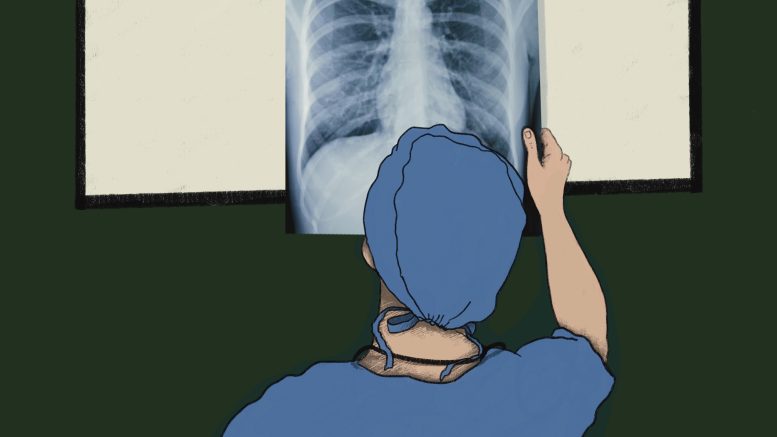Last month, U of M assistant professor in the college of nursing Tara Horrill was among the winners of the Canadian Cancer Society’s 2023 Emerging Scholar Research Grants competition, receiving funding for her research aimed at addressing barriers faced by socially disadvantaged individuals dealing with lung cancer.
Horrill’s work revolves around the broader theme of advancing equity in cancer care, focusing on understanding why certain groups, often socially disadvantaged, face challenges in accessing timely and quality cancer services.
As Horrill delved into her upcoming lung cancer study, she explained the correlation between lung cancer, geography and income. She highlighted that individuals with lower incomes residing in more remote areas are disproportionately diagnosed with advanced lung cancer and face challenges in accessing treatment in Canada.
Horrill’s curiosity lies in understanding the reasons behind this disparity — emphasizing the need to explore how socioeconomic factors impact access to treatment.
The project, beginning this February, aims to engage with both patients and health-care providers to identify challenges and ultimately inform changes in health-care policies and services.
Horrill outlined the upcoming lung cancer study as the next step in a broader strategy to design and implement interventions that improve access to care.
Horrill’s background as a registered nurse working in the field of oncology for 10 years inspired her to bridge the gap between clinical practice and research to understand and address disparities in cancer care. Reflecting on her experiences interacting with patients, Horrill shared her commitment to addressing health-care inequalities.
“It’s really challenging to hear about, and it’s much more challenging for them to experience,” she said, “I think hearing those stories always fuels my interest and my drive to make some sort of positive change.”
Her most current project investigates barriers to cancer care within two large urban areas of a province in Western Canada, focusing on the impact of health systems and organizational factors on cancer care accessibility.
Although research is still underway, the study has identified that cancer care services often neglect the social context of individuals, leading to challenges for those experiencing homelessness or unstable housing situations.
“There’s this fundamental mismatch between how services are designed and the actual needs of people who are experiencing various forms of disadvantage,” Horrill said.
Additionally, Horrill discussed the pressure to reduce wait times within the health-care system, emphasizing that such efforts can disproportionately affect already disadvantaged individuals. Policies aimed at efficiency, such as strict rules around keeping appointments, may inadvertently hinder access to essential cancer treatments for those facing the most barriers, she explained.
The physical and clinical spaces also play a crucial role. Horrill noted that hospital environments can feel “cold and institutional.” This may act as a deterrent for specific populations, such as Indigenous people who have undergone experiences in residential schools or foster care, from seeking care.
“When a building feels like an institution, it can mean that people don’t want to access care there,” she said.
The study further underscored the pervasive issue of racism, stigma and discrimination affecting individuals seeking cancer services.
“Sometimes they experience that when they’re trying to access cancer services, but sometimes they’ve experienced that many times over the course of their lifetime,” Horrill said.
“That makes them not want to go back if they’re anticipating some form of negative treatment.”
Recognizing the prevailing distrust toward health-care providers, institutions and researchers, particularly in settings studying disadvantaged populations, Horrill stressed the importance of establishing strong foundations through relationship-building within the community.
“It’s a really important first step,” she said. “Hearing from the people that are most affected by these problems can make your research more meaningful, and hopefully, more impactful in the long run.”


